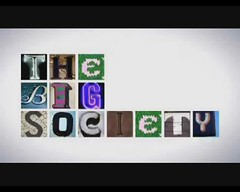 Image by Leo Reynolds via Flickr
Image by Leo Reynolds via FlickrA group of Christians in public life, including ministers and theologians, has launched a new network to oppose government cuts in public spending and welfare provision. They criticise the Coalition's 'Big Society' rhetoric as vacuous and misleading. The Common Wealth initiative says targeting the poorest in society is un-Christian and warns against churches being co-opted into plugging damaging gaps in social provision. The group's founding document - endorsed by a professor of theology, Anglican and Methodist clergy, a Cambridge academic and a religious think-tank, among others - provides a radical theological critique of government policies and the social and economic order they seek to maintain.
Steven Shakespeare, an Anglican priest and lecturer in philosophy at Liverpool Hope University, explained: "This is not the time for the churches to be cosying up to government. That would be a failure of nerve, imagination and faith. We need to be saying loud and clear that we are part of the resistance. We don't accept that the market is God."
The group says: "Christians in Britain today are called to take a stand. Faced with the biggest cuts to public spending for over a generation, it is not enough to retreat into the private ghetto of religious consolation. We are convinced that the actions of the current government are an unjustified attack on the poor. The rhetoric of necessary austerity and virtuous belt-tightening conceals a grim reality: the victimization of people at the margins of society and the corrosion of community. Meanwhile, the false worship of markets continues unchecked and the immorality of the growing gap between rich and poor goes unquestioned. We call on the churches to resist the cuts and stand in solidarity with those targeted," it declares. "We urge them to join the forces fighting back against a distorted ideology... [and] we commit ourselves not to give in to despair, fear and fatalism. Another world is possible, the world announced by Jesus in his teachings, embodied in the love he took to the cross, and alive in the Spirit of his risen strength."
Common Wealth says that churches should not be deceived by claims that the government is sympathetic to Christian ideals. The network describes David Cameron's 'Big Society', in which the state passes the buck to individuals, entrepreneurs, charities, and faith groups, as "a Big Lie". The 'Big Society' masks injustice, suffocating dissent with phoney "we're all in it together" sound bites, Common Wealth says. "It is divide-and-rule dressed up as high-minded community spirit."
The Common Wealth statement recognizes that, on the ground, churches and ministers are faced with difficult choices about working within the current system to get necessary resources to the most vulnerable. But it says that pragmatic decisions "should always be guided - and often limited - by a fundamental critique of the present order" based on a vision of a different society "revealed in the Church's sacraments and other symbols of transformation." Simon Barrow, co-director of the religion and society think-tank Ekklesia, said: "The idea that there is no alternative to cuts that hit the poorest is being seen by Christians as economically false, morally wrong and spiritually bankrupt."
Regional representatives from the West Midlands Region Churches Forum met on 2 November to consider the implications of the October Government Spending Review and the Big Society agenda for Christian mission in the region. They acknowledged two responses to the recent Government initiatives:
- to develop a prophetic critique of the Big Society and the current economic climate
- to recognise the opportunities for Christian mission afforded by the Government’s focus on local communities.
There was a general consensus about a need to guard against responding to ‘Big Society’ as the latest fad from ‘above’, especially in relation to any injustices that require people of faith to speak out. It was considered important that we ensure there are people taking responsibility to seek out those who fall through the social support net. This highlighted the importance of organisations such as Church Action on Poverty.
Minority Ethnic Christian Affairs (MECA) hosted the inaugural meeting of the ‘Big Society Forum’ on Thursday 9 December at the London offices of Churches Together in England. The Forum was attended by representatives of Black-led Churches and Minority Ethnic communities in England. Guest speaker was Mr Rudi Page, CEO, of international development agency RAFFA and member of the Cinnamon Network, a group of executives from Christian organisations involved in community services development and delivery. The Cinnamon Network recently carried out research that showed that Churches are delivering an estimated 72 million hours of volunteering for social initiatives at over £250 millions of direct funding per annum.
MECA Executive Secretary, Bishop Dr Joe Aldred said, ‘Faith communities in general and Black-led churches and Minority Ethnic Christian communities in particular do ‘Big Society’ as a way of life. Social responsibility has long been a core Christian virtue. And it is vitally important that as the government encourages local communities to take on more responsibility that minority communities are able to critique the new proposals and collaborate where possible, but always in the interest of the poor, disadvantaged, marginalised and what the bible calls ‘the least of these’”.
The Big Society Forum will meet three times during 2011 in order to raise awareness and promote understanding about the government’s flagship Big Society programme with a particular remit to encourage approaches that reduce inequalities in public and community services. Senior political, civic and religious leaders will be invited to hear from a diverse range of independent and national Black-led Churches and Minority Ethnic Christian communities.
Rudi Page, said "The Big Society Forum has been invited to contribute to a Community Leadership & Empowerment survey that will highlight and measure the impact of Black-Led Churches which through social action are inspiring peaceful, caring and enterprising neighbourhoods".
The CTBI website features further responses from Church leaders, including the Methodist President of Conference.

No comments:
Post a Comment